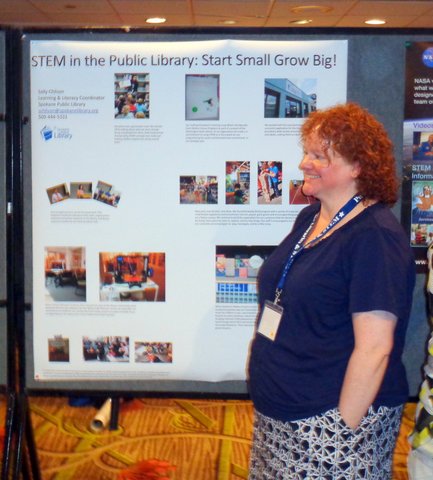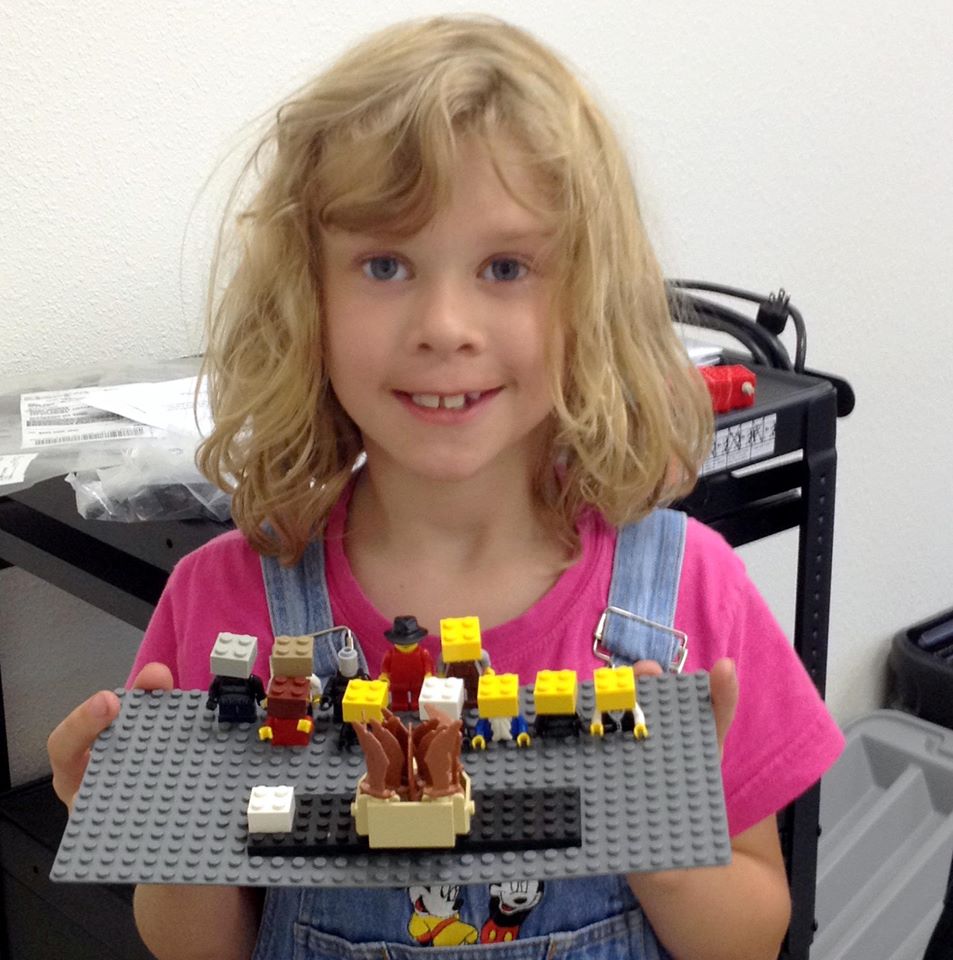Libraries and STEM learning
 From the desk of Rand Simmons, Washington State Librarian
From the desk of Rand Simmons, Washington State Librarian
Do you consider those years in elementary, middle, or secondary school as the primary time you invested in learning? Perhaps you went on to college or graduate school. But, over the course of a person’s life only about 3% is spent in formal education.
Education is not the equivalent of learning although one hopes the two intersect. However, some who study learning believe that the most effective learning happens not in formal education environments but in informal settings.
Once called the “people’s university” the public library has filled an important role in society, that of facilitating informal learning. The goal of lifelong learning ranks high on many library mission statements. We know that once a person completes formal education he or she will continue to learn and it makes sense that they turn to public library and use its resources. Libraries remain a trusted place to learn.
Much of the STEM movement has focused on children and on encouraging girls to become engaged in science, technology, engineering and math. But, STEM is important to adults, too. Adults need to find and hold jobs, to enter STEM careers or simply to enrich one’s knowledge.

The Washington State Library has invested federal funds to purchase STEM kits – Legos to be exact – that circulate among rural libraries so that kids can experience the wonders of science. 3-D printer is a popular STEM educational tool in libraries. We recently purchased a well-loved Egg Bot (a friendly art robot that can draw on egg-shaped objects) and demonstrated it at the annual conference of the Pacific Northwest Library Association. (See this short You Tube video of the Egg Bot).
Another State Library STEM program is the Microsoft IT Academy, an online technology training program provided free to the residents of Washington through public, two-year academic and tribal libraries. The IT Academy is a partnership between the State Library/Secretary of State and Microsoft and is funded by the State Legislature. Over 15,000 state residents have accounts on the site and are taking advantage of the hundreds of online courses over the past two years.
Project manager Elizabeth Iaukea notes, “Every time a learner takes an IT Academy course they are engaging in STEM. Public libraries have been supporting STEM education for at least two decades.”
 “Libraries and museums are improving learning in science, technology, engineering and math, a national priority for US competitiveness.” (Institute of Museum and Library Services)
“Libraries and museums are improving learning in science, technology, engineering and math, a national priority for US competitiveness.” (Institute of Museum and Library Services)
Rand Simmons and Elizabeth Iaukea recently attended the Public Libraries and STEM conference in Denver, CO.
According to State Librarian Rand Simmons, “Public libraries are amazing. They constantly adapt to meet societal needs. STEM addresses a national concern that the U.S. not fall behind in science, technology, engineering and math. Public libraries partnering with STEM industries and non-profits and government agencies that focus on STEM are part of the solution. Despite predictions of their demise public libraries remain viable and vibrant.”